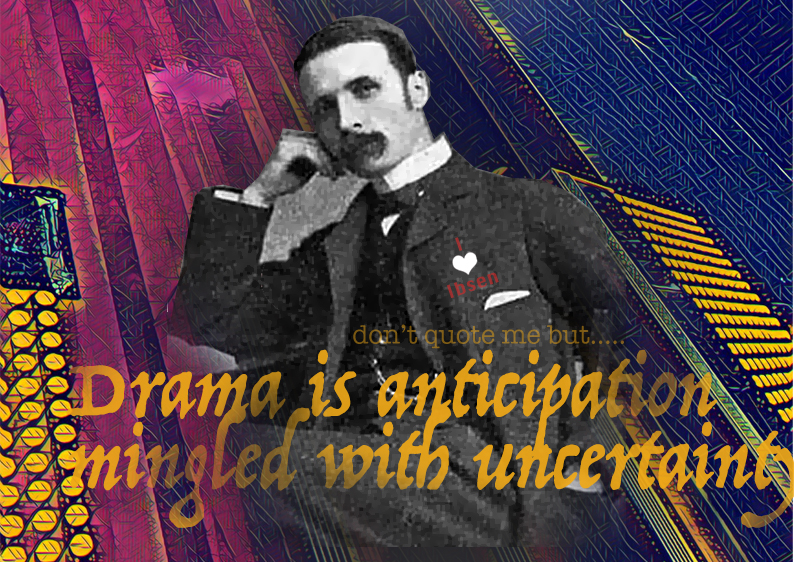
“Drama is anticipation mingled with uncertainty” —UK dramatist, William Archer.
(Don’t worry, I’d not heard of him either. A largely unsung Scottish drama critic, playwright and dramaturge of the late 19th/early 20th century. His big claim to fame is his English translations of Norwegian playwright, Henrik Ibsen. But with this statement, he gets promoted to first-class genius. )
The brevity and accuracy of this statement is gobsmacking. Bloke deserves a medal. Bring to mind any story that you truly love. Remember the first time you heard it you spent a fair bit of the time emotionally anticipating how the story would turn out but simultaneously found yourself in a state of nail-biting doubt about how things would turn out?
So you anticipate Jay Gatsby, of The Great Gatsby type Gatsby fame, will one day get together with his beloved Daisy Buchannon. That’s the whole spine of the narrative, actually, this persistent longing. It’s a longing we find ourselves picking up on subconsciously from the moment we see Gatsby staring at the green light across the water at Daisy’s mansion. It’s the stuff of romance in general.
We anticipate Jay’s success. With all the petulance of a spoilt brat, we begin to think Jay should have her, why can’t he have her, won’t it be amazing when he does manage to get her? True love! But our delicious anticipation of romance is laced with doubt. The uncertainty is lingering, always ready to push and pull us along with Jay’s story. We try to deny it, extricate ourselves from it, such is our desire, but the uncertainty won’t go away!
Drama = Anticipation ÷ Uncertainty (or something like that)
But isn’t the quote from William Archer just another way of saying “hey, a hero must be given a series of obstacles to his achieving what he wants”? Give your hero hell, as Michael Gow says.
Yes, in some ways, it is the same idea. But the Archer version is much more subtle—rather than expressing the need for a series of wins and losses along a narrative path toward a given goal, Archer’s statement expresses the need for a state of being—a state of drama. And more importantly, Archer’s statement describes not the mechanicals of a character’s journey in terms of what happens when, rather it expresses the emotions of the hero within the narrative, and moreover, the emotions of the audience’s experience of it.
So how does one achieve it? I think the most interesting word in the quote is the word ‘mingled’.
‘mingled with uncertainty’
The subtly of it. Think how different the concept is if you exchange the words “mingled with” with “plagued by”— totally different force of effort within the emotional idea, isn’t it?
Being able to infuse a sense of uncertainty throughout a hero’s journey is a much more challenging task than just listing the things that get in your hero’s way as he or she proceeds toward the goal. Mingled. A cock-sure hero is a boring one. An uncertain one is more complex and in my mind, more interesting. A classic example is Hamlet’s sense of unknowing, his uncertainty of purpose. But I think it’s even more subtle that the old “to be or not to be” idea of moral doubt. It’s beyond the binary question of to be or not.
And again, isn’t this statement of William Archer’s about the audience being uncertain overall about the outcome and its moral ground, not just the hero’s uncertainty- isn’t it that the audience feels unsettled by nagging moral or emotional conundrums of the journey?
Truth is, I do not know how to achieve it. Which makes me want to keep it in mind.
